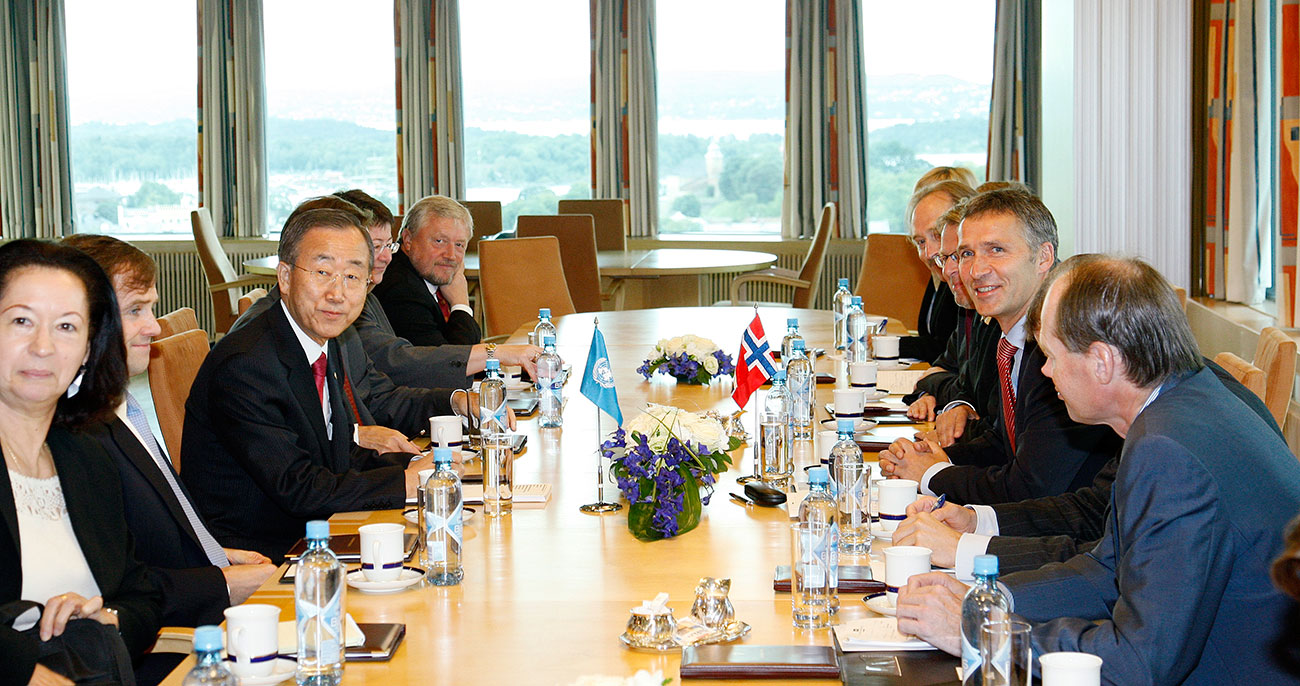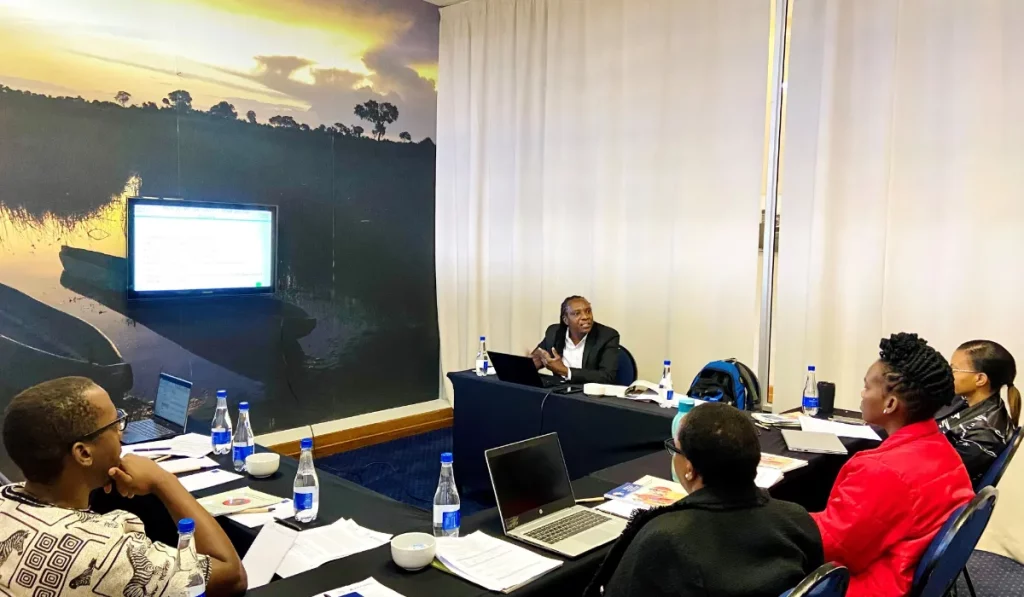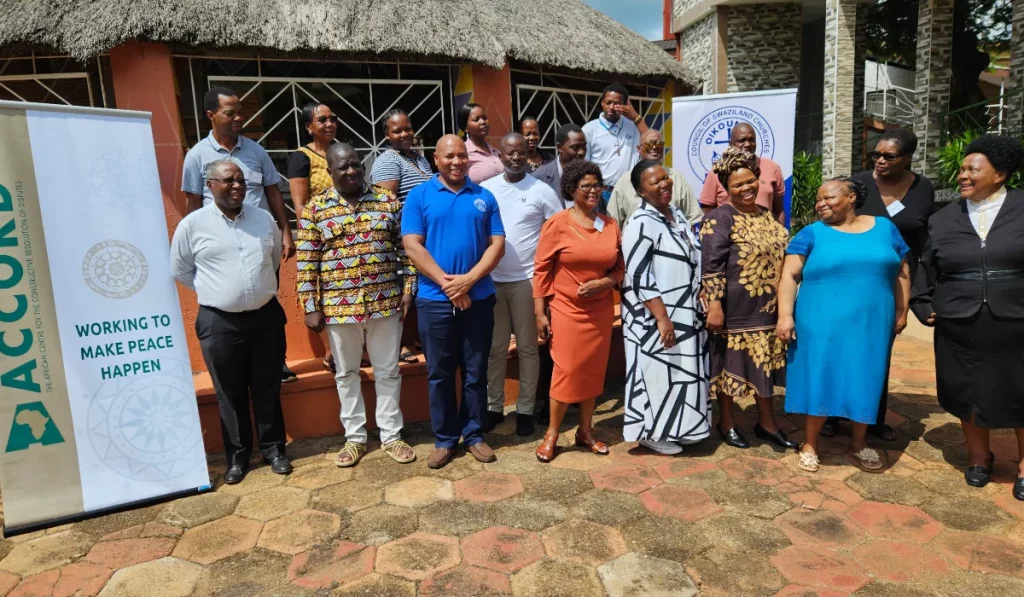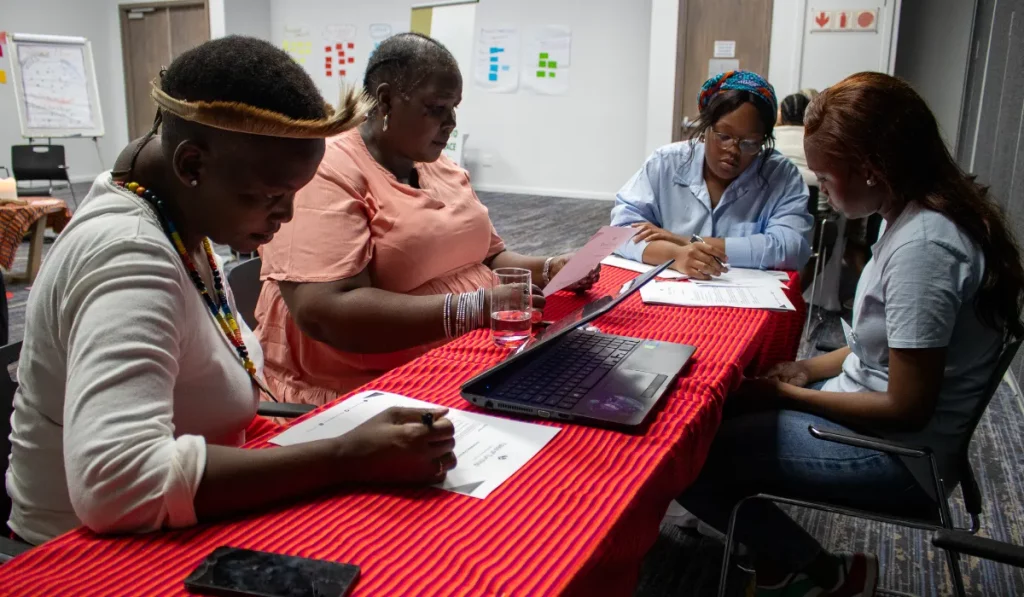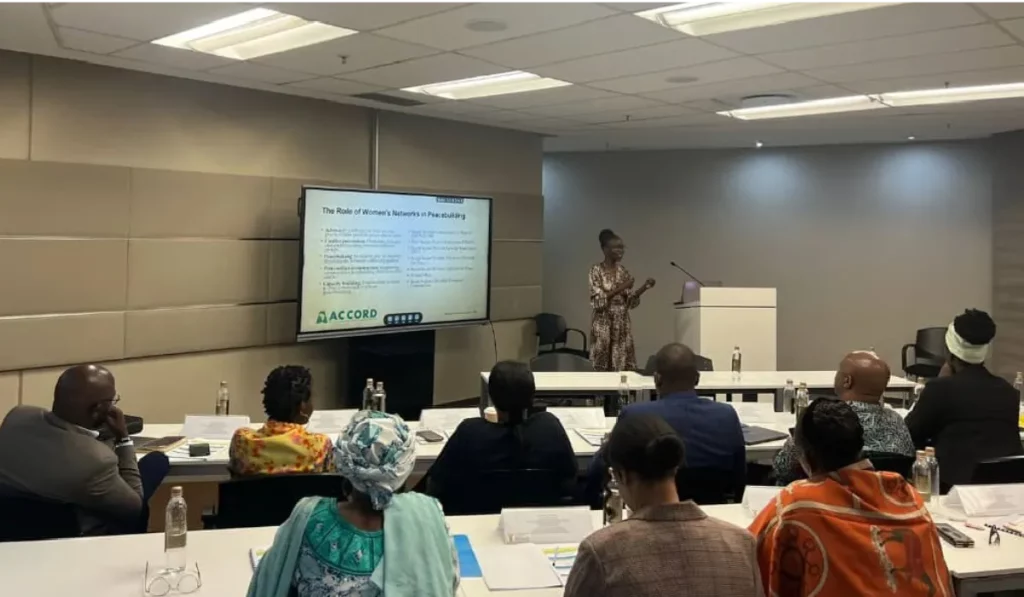The Training for Peace in Africa (TfP) Programme at ACCORD (TfP/ACCORD) have participated in the TfP Annual General Meeting (AGM) in Oslo, Norway. The AGM’s purpose was to highlight the TfP Programme’s main achievements and developments in 2014, and present its work plans for implementation in 2015. The AGM also provided a platform for partners to discuss and fine-tune the TfP joint initiatives for 2015.
The meeting also provided for sharing of feedback amongst the TfP partners on several issues relating to the Programme. These issues included; the TfP Research Network, TfP communication and information activities, African Union (AU) Peace Support Operations Division (PSOD) plans for 2015 and expected support from TfP, civilian training and capacity building (AU and non-AU focus), police training and capacity building (AU and non-AU focus) and the United Nations (UN) high-level panel on peace operations review and the AU engagements.
The TfP AGM was organised by the Royal Norwegian Embassy in Addis Ababa, Ethiopia on behalf of the Norwegian Ministry of Foreign Affairs. It was held from 24-25 March 2015 in Oslo, Norway. Member institutions from across the world were in attendance, including the Kofi Annan International Peacekeeping Training Centre (KAIPTC); Institute for Security Studies (ISS); the Norwegian National Police Directorate (POD); and the Norwegian Institute of International Affairs (NUPI) – along with representatives from the Norwegian Ministry of Foreign Affairs, which funds the TfP Programme. NUPI also hosted some of the AGM sessions in its offices. TfP/ACCORD was represented by Ms. Irene Limo, Senior Programme Officer, Peacekeeping Unit.
As part of the TfP AGM, the TfP Partners had the opportunity to meet with the AU PSOD for strengthening of the existing partnership. This also was an opportunity for an interactive engagement between PSOD and TfP partners on finalising the priorities and joint initiatives for 2015 which the TfP Programme will be implementing in the areas of policy development, training, applied research and rostering and recruitment. In particular, the TfP Programme plans to continue its support to the continental African Standby Force (ASF) ahead of the achievement of full operational capability by end of 2015. In 2013, the Chairperson of the AU Commission appointed an Independent Panel of Experts to conduct a comprehensive assessment of the ASF. The recommendations in the ASF Assessment Report highlights the need to focus further work on outstanding issues for the increased utility of the ASF as a tool for the African Peace and Security Architecture (APSA). The TfP Programme’s partner institutions will continue to support the implementation of ASF Assessment Report recommendations for the Regional Economic Communities/Regional Mechanisms (RECs/RMs) Standby Forces as part of their 2015 work plans.
In 2015, the UN High-level Independent Panel on Peace Operations will make recommendations to the UN Secretary-General on strengthening UN peace operations, so that they can better advance peace, assist countries caught in conflict, and remain as strong and effective tools in a changing global context. The AGM meeting also provided a platform for the TfP Programme to discuss on how to further support peace operations following the work of the 2015 UN high-level panel on peace operations review.
The continuous assessment of current trends and identified priorities of stakeholders, more particularly the AU will feed into the TfP Programme’s interventions to improve policy, operational guidance, integrated planning processes, and training curricula. This is in-line with the TfP Programme’s overall goal to contribute towards building sustainable African civilian and police capacity for multidimensional peace operations.
The Training for Peace Programme at ACCORD is an initiative funded by the Norwegian Ministry of Foreign Affairs.

